











Read More
B.Sc. in Biotechnology is a 3-year undergraduate programme which deals with basic and advanced study that provides a comprehensive understanding of cell biology, molecular biology, and genetic engineering. Students learn the fundamentals of cell structure and function, gene manipulation techniques, and the principles of genetic engineering. The curriculum includes practical lab work, covering techniques like PCR, RFLP, and RAPD, and applications in vaccine production, gene therapy, and environmental biotechnology. Additionally, the program emphasizes ethical, social, and environmental responsibilities, preparing students for diverse biotechnological careers and further studies in this rapidly evolving field.
Year wise Course Details
Courses for this semester
Introduce and make students understand the fundamentals and advances of cytology, including the structure and functions of cell and cell organelles, cell cycle, and cell division, also by observing it under a microscope.
This course gives a detailed description of atomic structure, different theories related to it and the knowledge of classical and quantum chemistry.
Principles of evolution, biodiversity, and genetics, including Mendelian and non-Mendelian inheritance patterns.
Understand key biotechnology principles, including genetic engineering, molecular biology, and bioprocessing.
Familiarize the students with how to determine the data to be collected, organize and summarize the information to draw valid conclusions or inferences about the population.
Agricultural Education is a multidisciplinary field that combines agricultural science, technology, and education to prepare students for careers in the agriculture industry
Ascertain physical and mental development of the students and select best performers for state, national and international level competition.
Courses for this semester
This course deals with understanding well-being: Psychological Well-Being, Objective Versus Subjective Measures, Adverse Versus Constructive
This course familiarizes with concepts of genetics, genetic materials, and the continuing process of evolution because of phenomenon such as linkage and crossing over, mutation etc.
To introduce students to the fundamentals of forensic biology, focusing on the identification, collection, and analysis of biological evidence in criminal investigations.
To learn the basic causes and development of different human diseases
Introduce the students about concept of buffer, pH, acid and base, chemical bonding and the energy relationships
Co-curricular refers to activities, programs, and learning experiences that complement, in some way, what students are learning in school i.e., experiences that are connected to or mirror the academic curriculum.
Courses for this semester
Immunology is the study of the immune system's structure, functions, and responses to pathogens, focusing on mechanisms of defense, immune disorders, and applications in disease prevention and treatment.
Molecular biology explores the molecular mechanisms governing the structure, function, and regulation of genes and proteins, emphasizing DNA, RNA, and protein synthesis in cellular processes.
Genetic engineering involves the manipulation and modification of an organism's DNA to alter genetic traits, with applications in biotechnology, medicine, and agriculture.
Biofertilizer production focuses on the cultivation and application of beneficial microorganisms that enhance soil fertility and promote plant growth by improving nutrient availability and biological activity in the soil.
MOOCS is provided through the Coursera Platform, which is an online course where students are allowed to take courses/ courses per semester based on the hours with relevance to the credit. The courses are provided by international universities across the world. During the courses, students have to submit assignments and quizzes.
Entomology is the scientific study of insects, focusing on their biology, behavior, ecology, and their impact on ecosystems, human health, and agriculture.
Forestry is the science and practice of managing forests, trees, and natural resources for conservation, sustainable use, and ecological health, balancing environmental, economic, and social benefits.
MOOCS is provided through the Coursera Platform, which is an online course where students are allowed to take courses/ courses per semester based on the hours with relevance to the credit. The courses are provided by international universities across the world. During the courses, students have to submit assignments and quizzes.
Extra-curricular activities encompass non-academic pursuits that enhance personal development, leadership, teamwork, and social skills, providing opportunities for students to explore interests outside the classroom and contribute to their holistic growth.
Courses for this semester
Study of biotechnological principles and techniques for improving food production, safety, quality, and sustainability.
The study of how organisms grow and develop, focusing on the genetic, molecular, and cellular processes that drive the formation of structures and functions from a single cell to a complete organism.
This course will give basic computer knowledge and their practical application and knowledge on computational database management system and its application in Biology
This course will introduce the students about concept of buffer, pH, acid and base, chemical bonding and the energy relationships
This course will provide skills to strengthen the promotion of mushroom cultivation by establishing a well-equipped laboratory and offices.
This course allows students to gain foundational understanding of the basic components of food and principles of food processing techniques.
This course provides a basic understanding of the significance and relevance of biological evidence in criminal investigations.
Courses for this semester
Medical biotechnology focuses on the application of biological systems, organisms, or derivatives to develop medical processes and products, including diagnostics, therapeutics, and vaccines, aimed at improving human health.
Industrial biotechnology involves the use of biological systems and organisms to develop and optimize industrial processes and products, such as biofuels, bioplastics, enzymes, and pharmaceuticals, for sustainable industrial applications.
Animal biotechnology focuses on the application of molecular and cellular biology techniques to improve animal health, enhance reproduction, develop transgenic animals, and produce therapeutic products like vaccines and antibodies.
Plant and Agriculture Biotechnology involves the use of genetic engineering, molecular biology, and tissue culture techniques to enhance crop traits, improve agricultural productivity, and develop sustainable solutions for pest control, disease resistance, and food security.
Experimental and Statistical Data Analysis focuses on designing experiments, collecting data, and applying statistical methods to interpret and analyze results, enabling researchers to draw meaningful conclusions and make informed decisions in scientific research.
MOOCS is provided through the Coursera Platform, which is an online course where students are allowed to take courses/ courses per semester based on the hours with relevance to the credit. The courses are provided by international universities across the world. During the courses, students have to submit assignments and quizzes.
Courses for this semester
The course aims to give students a broad understanding of research methodology, including theory of science and qualitative and quantitative methods. It also intends to impart knowledge on basic concepts of ethics and safety that are essential for different disciplines of science and procedures involved and protection of intellectual property and related rights.

CST- Common scholarship test is a national and international level online MCQ based examination funded for intellectual empowerment by Assam down town University.
CST- Maximum enrolment each year is 269 seats and any 10+2 students can apply. Adtu is northeast India’s first placement driven university to provide 100% scholarship benefits worth 30 cr.
CST aims to inspire brilliant and competent students to pursue further education. Accredited with a prestigious grade by NAAC, UGC and AICTE.
Explore more scholarships that can help you reach out your goal with financial aid.
This scholarship is valid on the basis of the board/university examination
| 95% & above | 100% Scholarship on all semester |
| 90%-94.9% | 50% Scholarship on all semester |
| 80%-89.9% | 25% Scholarship on all semester |
This scholarship is valid on the basis of the board/university exam
| National & International Level | 100% Scholarship on all semester |
| State Level | 50% Scholarship on all semester |
| District Level | 25% Scholarship on all semester |
This scholarship is valid on the basis of the board/university exam
| National & International Level | 100% Scholarship on all semester |
| State Level | 50% Scholarship on all semester |
| District Level & NCC Certificate Holder | 25% Scholarship on all semester |
Discover a multitude of world-class amenities and cutting-edge resources at Assam down town University, enhancing your academic journey to new heights.
The Start-Up & Incubation Centre at Assam down town University provides a supportive environment for young entrepreneurs to develop and grow their business ideas. The center provides mentorship, funding, and networking opportunities to help innovative ideas become successful businesses.
SFURTI scheme to support rural entrepreneurs and innovators, an initiative by the Ministry of MSME
TIDE 2.0 scheme for ICT-based startups which provides a grant of Rs. 4L and Rs. 7L under EiR and Grant categories respectively, an initiative by the Ministry of MeitY.
dtVL Ideation, an incubation program for early-stage entrepreneurs with a market-ready solution/product, offering interest-free loans up to Rs. 2 lakhs.
Sprout UP, an incubation program for students, faculties, and researchers with innovative business ideas, prototypes, or technology solutions.








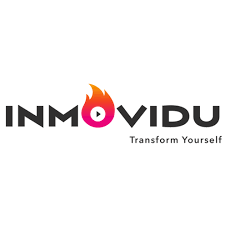
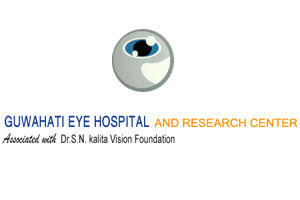
.png)

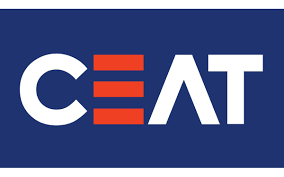




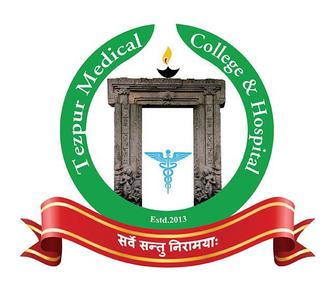

















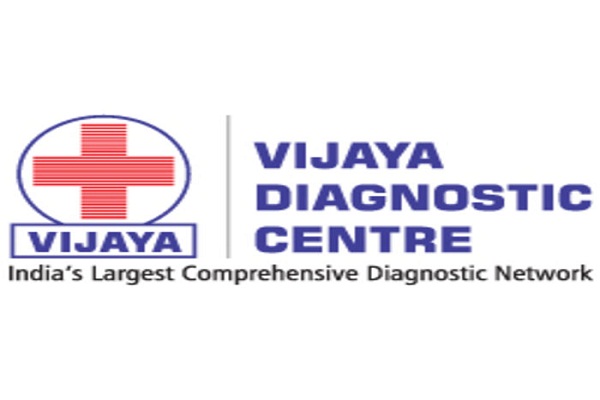










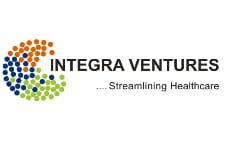



"I am a BBA student of 3rd semester. I hail from Bhutan. I vow that I am having a great experience i...
"AdtU is amazing. I am a BBA student of 2019-22 batch and I am just grateful for the amount of oppor...
Let us be grateful to the people and place who makes us happy. They are the charming gardeners whom ...
Currently I am pursuing MBA in Assam Down Town University. MBA is the professional course through wh...
AdtU is a university that focuses on giving knowledge, education and simultaneously making the stude...
The Assam downtown University has been a great learning experience. The university has provided me w...
My experience with AdtU has been splendid one indeed. Little needs to said about its scenic infrastr...
As a student I am very glad that I have got an opportunity to study here in Assam downtown universi...
My name is Sakhyajit Roy. I?m from Tripura. I joined the university on Auguest, 2017 as a student of...
I share immense pleasure to share my post graduate program experience in Assam down town University....
AdtU is a platform where I got golden opportunities to feed my zeal for knowledge through the dynami...
I am fortunate to get an opportunity to study here in Assam Downtown University. The best thing abou...
Our university is one of the best place for developing ourselves in the field of research and acedem...
ADTU is a university that is very good interms of infrastructure, academics and placements. Our tea...
It is one of best private colleges in North East India, it also provides a good environment for ed...
ADTU is a good University which provides the students with best quality lectures and ensures comfort...
The environment of Assam downtown university is very pleasant.The department of BMLT is very good a...
The university has all the necessary facilities and amenities for students . The classrooms and the ...
Assam downtown University is well recognised all over india. In the ongoing pandemic situation it ha...








